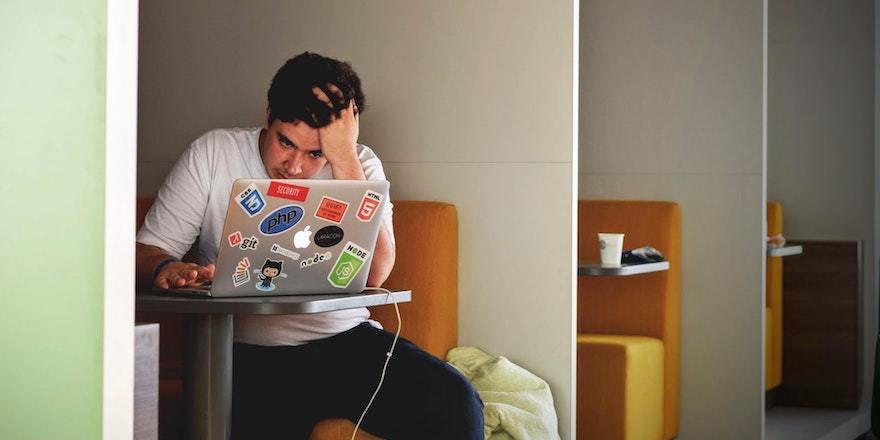Understanding and Preventing Burnout
Alexander College helps you recognize burnout and provides tips on how to prevent it.

As we continue to deal with the effects of the pandemic and the heavier workload of the end of the term, we must recognize and reduce the effects of stress. Multiple chronic stressors over an extended period of time may leave you drained and affect your work performance.
Although burnout and stress are both essentially about being out of balance, they differ from each other. Burnout is a gradual process that has to do with the cumulative effects of chronic stress. If you’re not able to properly reset or regenerate, it can lead to long term exhaustion, feelings of ineffectiveness and a decline in job performance.
Symptoms of burnout
There are three main components of burnout (Seidler et. al., 2013):
Emotional exhaustion
A primary indicator of burnout is feeling continuously emotionally, physically or mentally exhausted.
You may be dealing with insomnia and other sleep issues, mood changes such as anger, depression and anxiety, and physical problems. You may have little energy and are less motivated to work.
Diminished personal accomplishment
Burnout may leave you feeling ineffective in your job and you might feel so overwhelmed that you have given up on trying to achieve balance. Your efforts may feel futile and that nothing you do makes a difference.
Depersonalization
This aspect of burnout involves feeling detached from others, be it students, work peers, friends and family. You may also be withdrawn, “tuned out”, pessimistic, and more prone to conflict.
While the above symptoms can appear in everyone from time to time, recognize when they are unusual or persistent. A good way to determine if you are burnt out is to compare your current job performance and general functioning to how it has been previously. This may indicate whether what you’re dealing with is a temporary slump, or a long-standing issue.
How to prevent/reverse burnout
The good news is that burnout does not have to become chronic, and it can be reversed with the appropriate plan in place. Intervention is key with burnout, and we can make active decisions toward having more balance.
Recognize what is under your control
We don’t always have control over our stressors or workload but consider if there is anything you are able to do to shift your situation.
For example, if you are constantly being bombarded with messages, can you have better limits in place for responding. Are you able to ask for more help or resources to assist you? Communicate clearly about what you find difficult to deal with.
Manage your workload
You will feel off kilter when your workload exceeds your capacity to manage it. We often feel uncomfortable saying no to others but consider when you are putting too much on your plate. Planning and prioritizing your duties more efficiently may provide more space to rest.
Delegate tasks if possible, even in your household. Often we try to take everything on by ourselves. Also, let go of perfectionism. Setting unrealistic standards puts a lot of undue pressure on yourself, adding to feelings of chronic stress.
Manage your energy
Some days you may feel so busy that you can’t take a break. This is usually when you need it the most. Prioritize your mental health amongst whatever chaos you may be feeling. Take 15 minutes to unplug, go for a walk or just simply be. Plan ahead for busy times.
Seek mentorship and support
Good social support, which can be harder to come by when isolated, has a positive effect on our mental health. Keep in touch with co-workers, family, and friends as best you can.
Minimize contact with those that drain you. If you are new to your position, look for a mentor to provide advice and guidance in difficult situations.
Unplug
Allow yourself to disconnect for your own self-care. Much of the burnout people are experiencing stems from the amount of time we are now spending online.
Look at your relationship with technology after hours as well. Get offline and connect with others in person. Engage in activities that are restorative and can help get your mind off work. This includes sleep, which is one of the foundations of good physical and mental health.
In a nutshell, approach burnout using the “Three R’s” (Smith et. al., 2020). Recognize the signs; Reverse the effects by managing your stress and seeking support, and build your Resilience with good mental and physical self-care practices.
Remind yourself that this continues to be a unique and challenging time be working through so be as gentle as you can with yourself.
Learn more about Alexander College